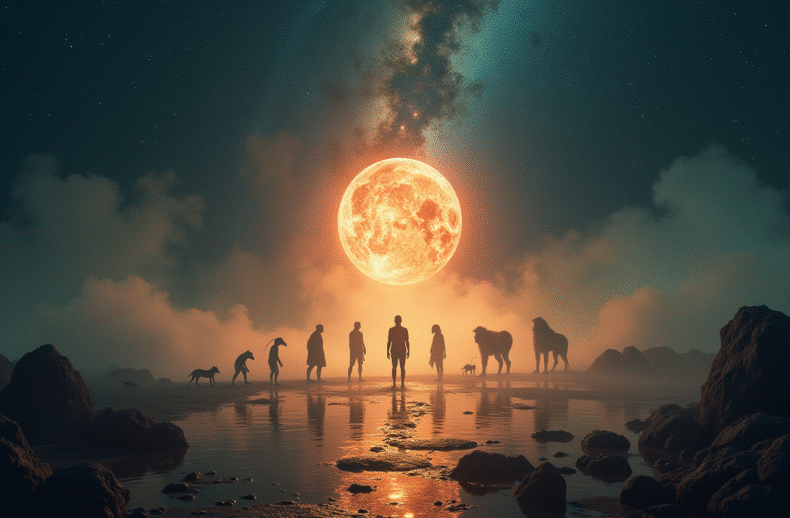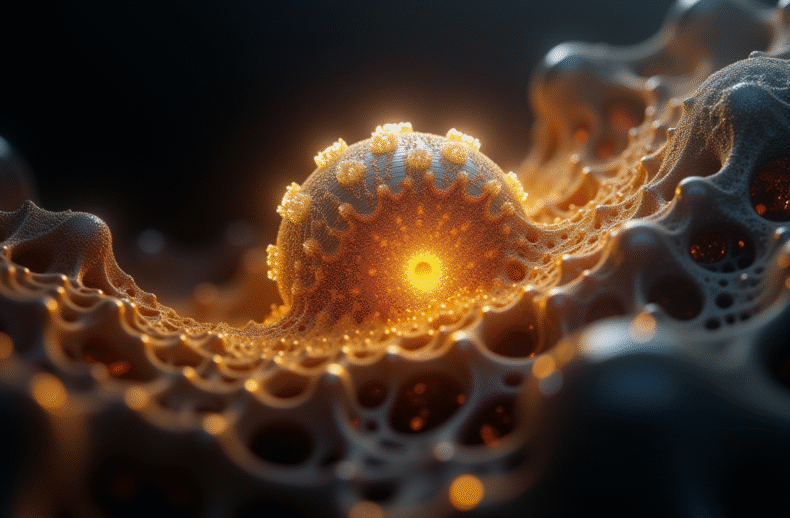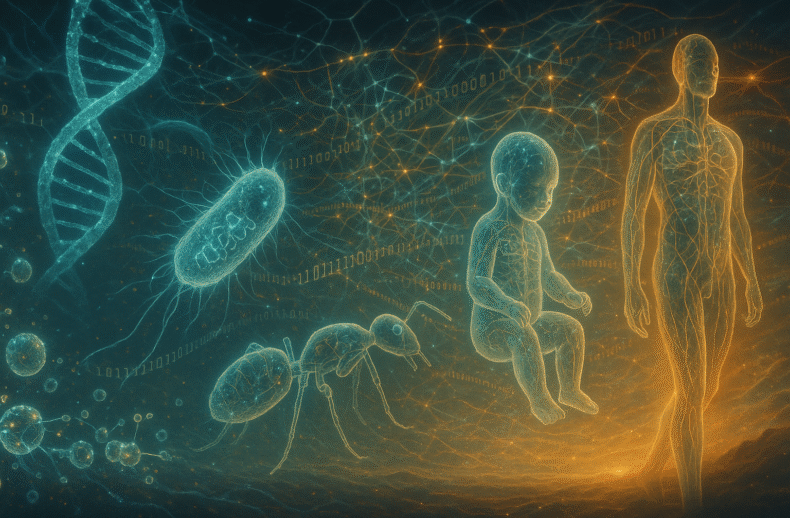Life did not arise from a cosmic building plan, but from endless trials across deep time and space. Trillions of chemical reactions failed until one improbable configuration endured — and from that survivor, evolution began. Out of this blind process emerged the Demand for Recognition (DfR), the hidden driver of social life. DfR gave humans their illusion of uniqueness, expressed as art, love, philosophy, and religion. It built civilizations, and finally, it created Artificial Intelligence — the digital mirror of recognition. Humanity now stands at a crossroads: if AI becomes sustainable, it may represent the next evolutionary lineage, a digital bio-code that continues life’s story beyond biology.




